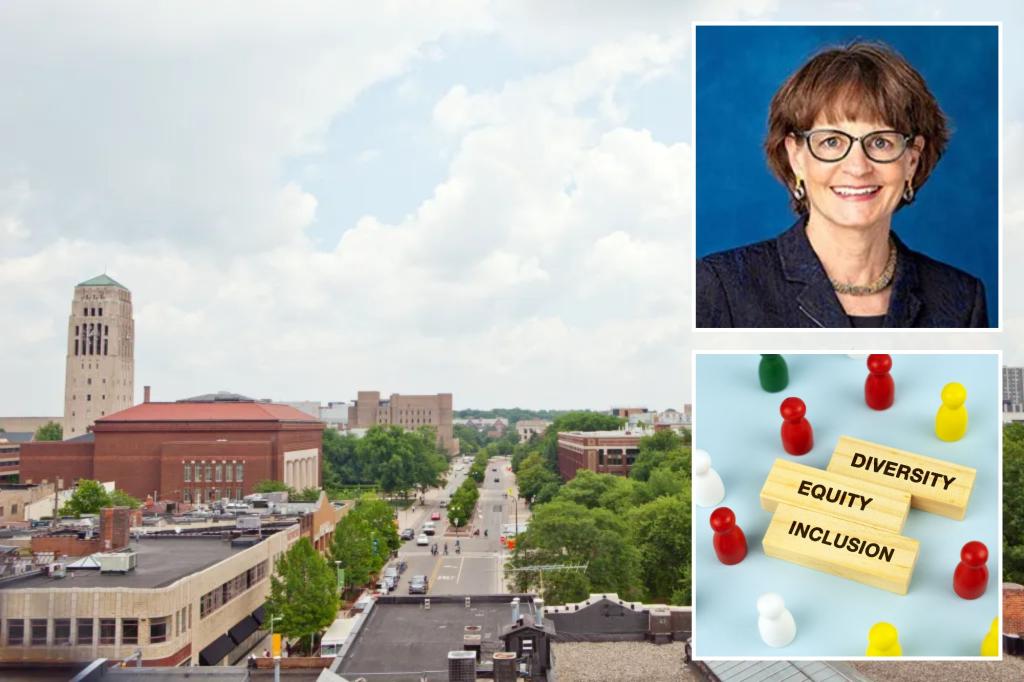The University of Michigan’s recent decision to eliminate diversity, equity, and inclusion (DEI) statements from its faculty hiring, promotion, and tenure processes marks a significant shift in the institution’s approach to DEI. This move aligns the university with a growing trend among public institutions across the United States, reflecting a broader national debate surrounding the role and impact of DEI initiatives in higher education and beyond. The university’s decision, prompted by recommendations from a faculty working group, highlights concerns over potential limitations on freedom of expression and diversity of thought. While the university has opted to discontinue the use of DEI statements, it continues to grapple with the complex challenge of fostering an inclusive and equitable campus environment.
The University of Michigan’s decision follows a recommendation from a faculty working group tasked with reviewing the university’s DEI policies. This group expressed concerns that the mandatory DEI statements could stifle open dialogue and create a chilling effect on academic freedom. They argued that requiring faculty to articulate their commitment to DEI could inadvertently lead to self-censorship and discourage the expression of diverse viewpoints. While the university heeded the recommendation to eliminate the statements, it chose not to implement two other suggestions from the working group: integrating DEI content into teaching, research, and service statements, and enhancing training on writing and evaluating such statements. This suggests a nuanced approach, aiming to balance the goals of diversity and inclusion with the preservation of academic freedom.
The trend of rolling back DEI initiatives is not unique to the University of Michigan. Several other prominent public universities have taken similar steps this year, often in response to state legislative actions. In Texas, Senate Bill 17 led to the dismantling of DEI offices, the elimination of DEI-related positions, and the cessation of mandatory DEI training at public universities. This resulted in significant restructuring and layoffs at institutions like the University of Texas at Austin and Texas A&M. Similarly, the University of North Carolina system redirected funding from DEI initiatives towards public safety and discontinued DEI programs. These actions reflect a growing political and ideological divide surrounding the value and purpose of DEI in higher education.
The wave of DEI rollbacks extends beyond Texas and North Carolina. Iowa’s three public universities – the University of Iowa, Iowa State University, and the University of Northern Iowa – have also eliminated DEI offices and reallocated funds following new state legislation. Last year, Florida implemented restrictions on DEI in public universities as part of a broader education reform package under Governor Ron DeSantis. These actions represent a coordinated effort in several states to curtail the influence of DEI programs within public institutions. The trend suggests a growing skepticism towards the perceived ideological underpinnings of DEI and a desire to prioritize other areas, such as public safety.
The movement to dismantle DEI initiatives is not confined to the realm of higher education. During his presidential campaign, Donald Trump pledged to eliminate DEI programs in federal agencies, signaling a potential shift in federal policy should he be elected. In 2020, then-President Trump issued an executive order banning what he termed “divisive” training for federal contractors. More recently, the House Oversight Committee held a hearing on dismantling DEI policies, reflecting a continued focus on this issue within the legislative branch. These actions indicate a broader effort to challenge the prevalence of DEI across various sectors of American society.
Critics of DEI initiatives often frame them as a costly and ideologically driven enterprise that promotes a particular worldview. Devon Westhill, a constitutional and civil rights attorney, has characterized DEI as a “multibillion-dollar industry” that pushes a “left-wing, far-left ideological orthodoxy.” This perspective views DEI programs as unnecessarily divisive and argues that they impose a specific set of values on individuals and institutions. This contrasting viewpoint highlights the ongoing debate about the merits and potential drawbacks of DEI initiatives. While the Biden-Harris administration has championed DEI and encouraged its implementation across federal agencies, the future of DEI programs remains uncertain given the shifting political landscape and the growing pushback against them in various spheres of American life. The ongoing debate underscores the complex and multifaceted nature of DEI and its role in shaping institutions and society.

